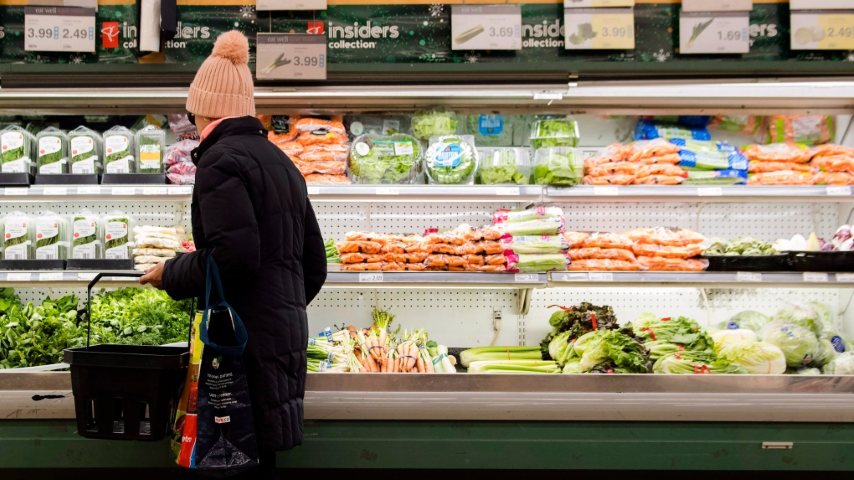
A woman overlooks produce in a grocery store in Toronto on Friday, Nov. 30, 2018. THE CANADIAN PRESS/Nathan Denette
Canadians are increasingly looking for ways to manage rising grocery costs by addressing food waste, according to a recent report from the Agri-Food Analytics Lab at Dalhousie University. The report, based on a survey of 5,000 adult Canadians, indicates a growing concern among respondents about the anticipated increase in food prices in the coming year. As 80.3% of Canadians expect a rise in food prices, many are focusing on resolutions related to cost-saving measures.
The 2024 edition of Canada’s Food Price Report, released earlier this month, predicts an average increase of $701.79 per family of four in food expenses next year. In response to this, a significant number of respondents are aiming to reduce food waste as a means of saving money. Canadian households waste an average of 140 kilograms of food annually, costing each household approximately $1,300.
To address this, 48% of respondents plan to improve meal and shopping list planning, and 36.2% intend to consume leftovers more regularly. Additionally, 32.7% plan to use freezers and canning for food preservation, 24% will opt for products with longer shelf life, and 21% will reduce portion sizes.
The shift towards reducing food waste is seen as more than just an economic adjustment; it represents a cultural change in how Canadians approach food choices and consumption patterns, according to Sylvain Charlebois, director of the Agri-Food Analytics Lab.
As grocery costs escalate, 38.3% of respondents plan to dine out less often in 2024, and 12.2% plan to avoid dining out entirely. Among those still planning to dine out, 6.4% intend to do so more frequently, while 39.4% plan to choose more budget-friendly restaurants. Additionally, 24.2% will skip side dishes or alcohol, and 13.7% will share meals to cut costs.
The report reveals that Canadians are reevaluating their grocery shopping habits, with fewer seeking premium products in 2024. Instead, 43.3% plan to focus more on promotions, 34.6% intend to use more coupons, and one-third plan to utilize loyalty programs more frequently. Additionally, 30% of respondents will explore other stores for better deals.
Beyond economic considerations, respondents are also motivated by health-related goals for 2024. A significant number (43.2%) plan to reduce purchases of snacks and convenience foods, while 30.5% aim to decrease meat consumption, and 28.2% plan to cut back on alcoholic beverages. Notably, 16.3% intend to reduce fish and seafood purchases, and 12.9% plan to cut back on fresh produce or dairy products.
Janet Music, research manager at the Agri-Food Analytics Lab, notes that this year's findings indicate a substantial shift in Canadians' approach to food choices, with an increased emphasis on sustainability, health, and local sourcing. These trends reflect a deeper transformation in the Canadian food industry, signaling a growing awareness among consumers about the broader impacts of their food decisions.















